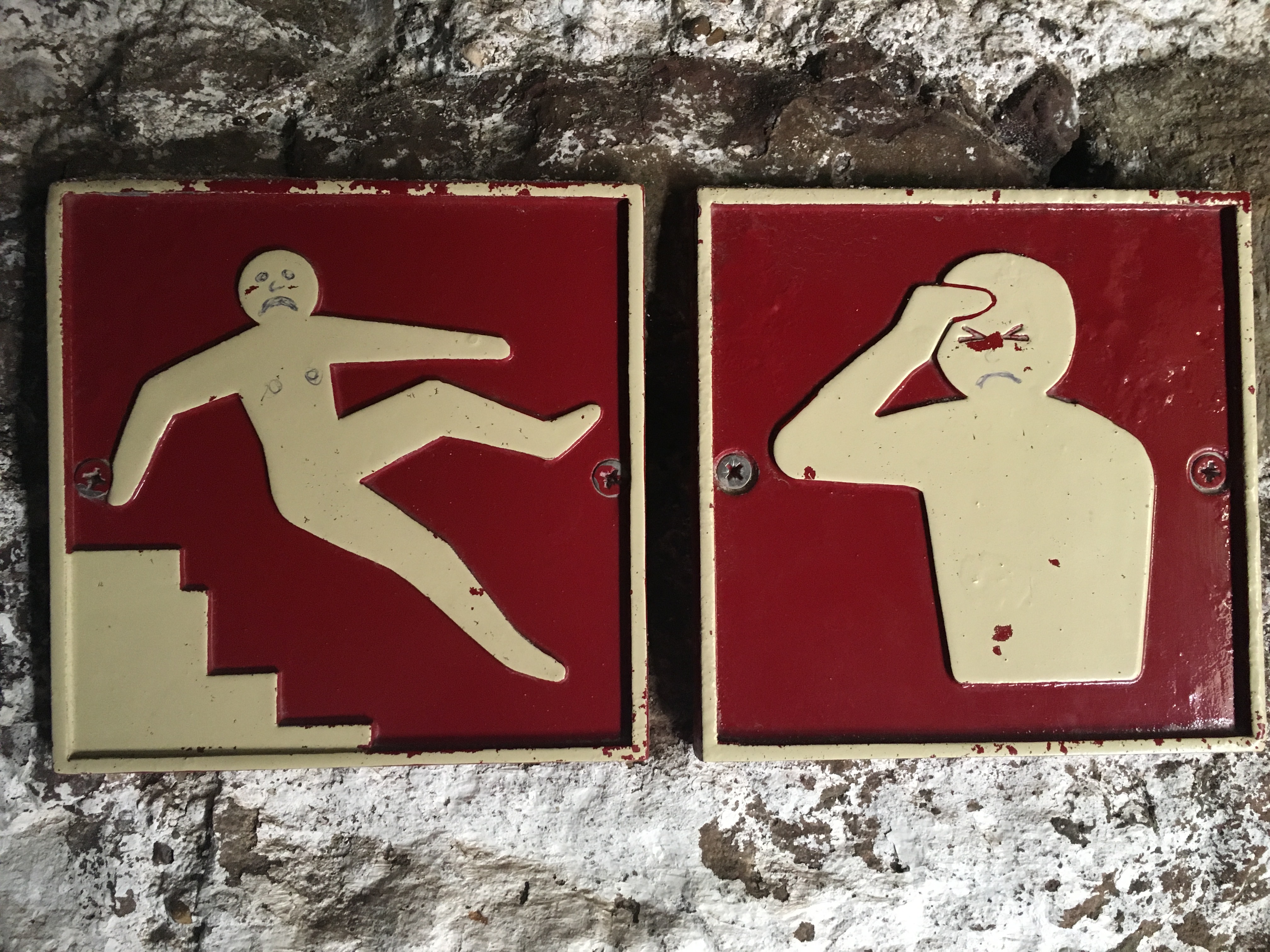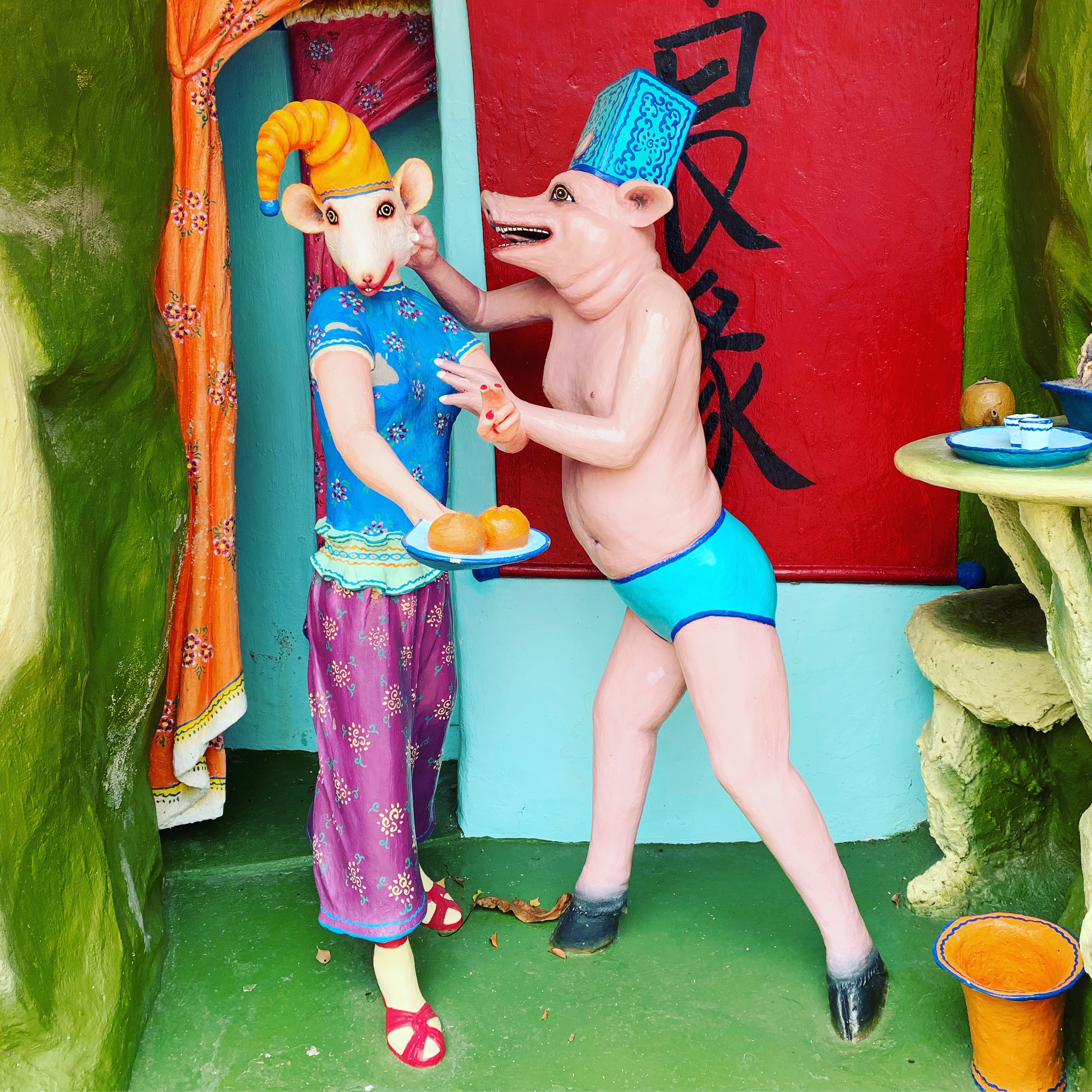I don't always use Wikimedia Commons for cover photos, but sometimes you just need an old lady dancing
It's no secret that once we decided Taiwan was our permanent home, we truly meant permanent. We intend to work, build lives, retire and die here just as millions of Taiwanese do, despite not being citizens. For people like us, dual nationality just makes sense. I've talked about this extensively before, and I'll summarize my case again below.
But first, let's talk about the preliminary comments from Taiwan's Ministry of the Interior (MoI) on Crossroads Taiwan's petition to amend the nationality law and end the country's double standard on who can and cannot obtain a second nationality.
Those comments (translated by me) are a big fat pile o' nothing:
Wu Hsin-te, Chief of the Nationality Administration Section of the Department of Household Affairs of the Ministry of Interior, said "Those with special distinctions and senior professionals can obtain dual nationality. This year's amendment allows senior professionals, who originally had to wait three years before they can apply for this period of residence, to do so in two years.”
Okay Mr. Wu, but that's not very helpful for those of us who are professionals and are skilled in our fields, but do not meet the frankly insane requirements in all but a few fields to be officially deemed "senior" or "special" professionals deserving of a path to dual nationality.
In education, you have to be a professor. There is an exception for those who've published in "high impact journals" but this is a bit of a joke: who has the time or support to do that without the funding and access provided by universities? I have a Master's and I train Taiwanese teachers in exactly what they need to meet a specific government goal -- Bilingual by 2030 -- which happened to be the brainchild of President Lai Ching-te. I also help Taiwan's businesspeople better engage with international counterparts. I have been a teacher for two decades.
Yet I don't qualify. I'm not "special" or "senior" enough.
I'd say that I "should" qualify (and I do feel that I do, without shame), but the entire notion of a class system of Deserving Foreigners vs. Garbage Foreigners is ridiculous. It should not exist at all. More on that below, too.
The Ministry of the Interior emphasized that the country has a single nationality system...
This is false. Taiwanese can have more than one nationality, and so can the foreigners they deem to be not garbage. The MoI should not lie like this.
...and the Nationality Law was just revised in May.
Except for senior professionals such as senior engineers, or clergy and other distinguished persons who have contributed to Taiwan, they do not need to give up their citizenship, they can get ID cards.
What I want to know regarding this "single nationality policy" is why they think the double standard is acceptable. Most countries have the same law for everyone, naturalized or born. Either one can have multiple nationalities, or one can't. It's actually fairly rare to allow that privilege for born citizens, the descendants of ROC citizens abroad, and a very few Special Magic Foreigners but no one else. A few countries do this -- South Korea comes to mind -- but most don't.
The US, for example, doesn't recognize other nationalities their citizens may have, but won't end their citizenship over it (most countries that allow multiple nationalities have such a policy). In fact, a few Americans who don't have ROC/Taiwanese heritage have obtained Taiwanese nationality without renouncing US citizenship.
Japan, on the other hand, has the same rule for everyone regardless of how you became Japanese: you can only be Japanese. If you're caught with another nationality, you either have to give it up or lose Japanese citizenship.
Besides, they think people like me and thousands of others who do work every day that do contribute to the economy, tax revenues and in other ways don't "contribute to Taiwan"? My training Taiwanese teachers and helping Taiwanese business leaders do their jobs isn't "contributing to Taiwan"?
Thanks.
The revised law also solves the problem of the status of children born in illegal households. Stateless children can apply for naturalization with the assistance of social welfare agencies and guardians.
That's great. Cool. But it doesn't really help the other mmigrants who have made their lives here but don't have the tools they need to retire in the country they call home. So it's a good start, but completely insufficient.
Needless to say, it's disappointing. It's a nothingburger.
And it underscores the completely bonkers caste system of Deserving vs. Garbage. I know there's an argument out there that Taiwan has the right to determine who gets access to dual nationality based on the talent it wants to attract.
This is a stupid thing to think.
First, the immigrants Taiwan needs the most are the blue-collar workers, mostly from Southeast Asia, who keep the factories and fishing boats running and take care of the grandparents. The Taiwanese government surely knows this, but doesn't tend to admit it. Without them, the economy would grind to a halt.
Besides, having "the right" to do something (which Taiwan unarguably has) doesn't mean it's the right thing to do.
I think what I do matters. I do believe I contribute in my way. However, if I left, Taiwan would survive. I'm white collar, but I am absolutely not as critical to Taiwan's core economic interests as the group who gets paid the least and treated the worst. The group that isn't even under discussion as having a path to dual nationality, even within Crossroads' campaign.
Unfortunately, Crossroads' strategy is realistic: if the public can see that people like me deserve a path to dual nationality, it should be then a little easier to convince them that similar path for blue-collar workers won't flood the country with job-takers, and most who come here to work eventually leave, anyway. Those of us who want to stay, including among blue-collar workers, are a smallish slice of the total foreign population.
With people who have ancestors who were ROC citizens having fairly easy access, despite the fact that their families may have no other connection to Taiwan, it's easy to see that Taiwan's preference is still based more on race and politics than actually "attracting the talent" Taiwan needs. The caste system is thus:
1.) People with Chinese (ROC) ancestry, under the assumption that this will make one "loyal" to Taiwan.
How? I cannot say. Loyalty isn't a genetic or race-based trait. I'm not against such people having that right, but can we just admit that it's also just an ethnic preference, like most jus sanguinis citizenship paths?2.) Relatively wealthy Westerners, most likely envisioned as "white people" in most Taiwanese government minds, even though not all Westerns are white, and Chinese spouses.
In fact, Chinese spouses might be in the first group. It's debatable.
3.) Regular Westerners (like me). White still probably preferred, because racism.
4.) Southeast Asian blue collar workers and most foreign spouses.
So please, please, do not tell me it's about "attracting talent". It's not. Taiwan needs the fourth group the most. But while I'm being hyperbolic when I say I'm considered garbage (I'm more like very nice recycling?), this crucial group is actually treated like garbage. It's not right.
It's all politics and discrimination. An absolute clownshow. Don't even pretend otherwise.
There is an optimistic reading of these comments, however. The Taiwanese government tends not to show its hand even if changes are being considered. It simply won't admit as much until the change is official.
Take the economic subsidies. When Ma Ying-jeou's government handed out cash, permanent residents were excluded unless they had a local spouse. When we inquired, we were treated rather rudely. The subsidies were for "taxpayers". I am a taxpayer, but was told that being a taxpayer is not sufficient to get the benefits of...being a taxpayer.
The government lackey who had the absolute stones to say that with a straight face has my eternal emnity.
But then the COVID vouchers and NT$6,000 tax payback were rolled out under Tsai Ing-wen, and after a brief back-and-forth, permanent residents were included. This is certainly due in part to a different attitude toward foreign residents from different administrations -- Ma's people streamlined some processes for us, but at the end of the day, would never actually consider us part of the fabric of Taiwanese society.
But it also means that a general attitude shift was afoot. We were rebuffed, but then the system changed.
It's an oft-made observation that the Taiwanese government does things in baby steps. Evolving nationality laws are part of that, and I have it on good authority that Tsai Ing-wen understood the need for them to change. Eventually, someday, Taiwan will probably relinquish the double standard, just as it's slowly fixing its mess in not making marriage equality truly equal.
And I love Taiwan because here, things do tend to get better.
Here's the thing, though: it's too damn slow. Yes, I want this for Taiwan's own wellbeing -- immigrants are vital to its future. I want it for new generations of immigrants who move to Taiwan.
But damn it, I also want it for me. And at the pace the government is moving, the change that will make it possible for me to truly call Taiwan home won't come until I'm too old to benefit, or long dead.
What good is dual nationality, which would make it more possible for us to own a home where we can grow old in Taiwan, if we're 70 when it happens? Who buys their first home at 70? Who can? I'm not angry that it's a step-by-step process. I am very angry that it's going so slowly that I have less and less hope of seeing it in my lifetime. This doesn't just matter in general, it matters specifically to me.
The only thing that does give me hope is that groups like Crossroads are making an effort. When civic groups get involved, it tends to speed up the pace of change.
Why do I care so much? As a permanent resident, don't I have access to pension plans, labor insurance and health insurance?
Yes, but it's not really sufficient. Leaving aside the more abstract desire to vote -- to have a civic voice and representation in the country I call home and would fight for -- it matters for practical reasons as well.
After building careers here and contributing to the country through our labor (we hope, anyway), access to the tools we'd need to retire here matter. Permanent residency is usually sufficient, but it does not give us access to everything we'd need to feasibly retire in Taiwan.
Home health aide and long-term care subsidies are out of reach. Although legally foreign residents can buy property in Taiwan, actually getting approved for a mortgage can be a challenge. If approved, we're likely to be asked for an infeasibly large deposit (I frequently hear 40%) and frankly insane interest rates. Programs to ease the burden for first-time homeowners? Once again out of reach.
And yet, where are we supposed to live when we're old? Landlords don't like to rent to the elderly, but we don't have local family to take us in.
Why don't we just renounce?
We have obligations in our country of birth that are not easily discharged, such as aging relatives. Post-renunciation resumption of citizenship is not a feasible option for Americans. As above, most other countries have the same rule for born and naturalized citizens, so we resent the double standard.
More importantly, however, if we renounce, what are we supposed to do when our aging parents might need our care? We're not rich, we can't pay full-time health aides. We can't go back temporarily to be caretakers and not work as well. We just don't have that financial flexibility.
I thought that Taiwan cared about family responsibility. Filial piety and all that. What is this if not the definition of filial piety, and yet Taiwan doesn't seem to value it at all when it comes from a foreigner. Does it only matter when the aging parents are Taiwanese?
Usually, we love that Taiwan is not like "most other countries". Life here is good. In this particular way, however, Taiwan diverges from the norm and for a country seeking to attract "foreign talent", it's a big fat problem.







